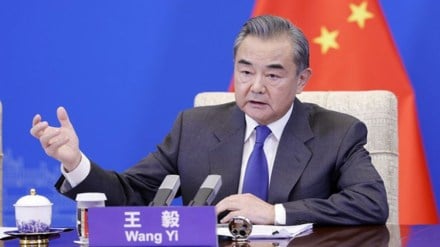India-China relation: Chinese Foreign Minister and Politburo member Wang Yi is set to arrive in New Delhi on Monday for a two-day visit at the invitation of National Security Adviser Ajit Doval. His trip comes at a delicate time, as India recalibrates its foreign policy in the wake of the Trump administration’s tariff blitz, which has strained Delhi’s trade and diplomatic ties with Washington.
India-China trade talks
President Donald Trump doubled tariffs on Indian goods to 50 per cent and imposed an extra 25 per cent penalty over New Delhi’s continued purchase of Russian oil, straining bilateral economic and strategic ties. Meanwhile, China, which is refining Russian oil and selling it to major countries including those in Europe, has been spared from Trump’s additional tariffs.
Meawhile, India is considering a relaxation of restrictions on Chinese investments in certain non-sensitive sectors, in what officials describe as a step towards cautiously restoring economic ties with Beijing amid growing uncertainty over United States tariffs, according to a Mint report.
People familiar with the discussions said the proposal being examined would identify areas such as renewable energy, consumer goods, and specific segments of manufacturing where Chinese companies could gain faster and simplified approval for investment. However, sensitive domains such as defence, telecom, and critical digital infrastructure would remain off-limits to protect national security, they added.
Officials emphasised that there is no plan to amend Press Note 3, which mandates government scrutiny of all investment from countries sharing a land border with India. Chinese investments, therefore, would continue to pass through the approval route rather than the automatic one.
India imposed tighter curbs on Chinese capital flows following the Galwan Valley clash in 2020, but bilateral trade has only deepened. Imports from China surged from $94.57 billion in FY22 to $113.45 billion in FY25, while exports fell sharply. Beijing, meanwhile, retains leverage through its dominance in rare earths, tunnel-boring machines, and skilled manufacturing personnel, underscoring India’s strategic vulnerabilities.
India-China border talks on agenda
A key highlight of Wang Yi’s visit will be the 24th round of the Special Representatives’ Talks on the India-China boundary question. He will meet NSA Ajit Doval on Tuesday morning to discuss the long-running dispute, which has seen tensions flare along the Line of Actual Control (LAC) following the deadly Galwan Valley clashes in 2020, in recent years.
Bilateral meetings
External Affairs Minister Dr S Jaishankar is scheduled to meet Wang Yi on Monday evening for a bilateral dialogue that will touch on trade, connectivity, and regional security. The two ministers are also expected to discuss the resumption of direct flights between India and China, a step seen as part of confidence-building efforts after years of strained relations.
Yi-Modi meet
On Tuesday, Wang Yi will call on Prime Minister Narendra Modi at 5:30 pm. This meeting assumes added importance as it precedes Modi’s own visit to China from August 31 to September 1, his first in seven years. Modi will attend the Shanghai Cooperation Organisation (SCO) summit in Tianjin, where he is expected to hold separate bilaterals with Chinese President Xi Jinping and Russian President Vladimir Putin.
What do we know about Modi–Xi relation?
According to experts, Wang’s discussions with Modi and Jaishankar will help finalise the agenda for the Modi–Xi meeting at the SCO summit. Beijing is keen to project stability in Sino-Indian ties at a time of intensifying global competition, while New Delhi seeks assurances on border management and fair trade practices.
Wang Yi’s visit underscores China’s effort to draw India closer at a moment when Delhi’s relations with Washington are under strain. For India, the challenge will be to engage Beijing constructively without undermining its long-term strategic partnerships with the United States and other Quad members. Meanwhile, India and China is likely to resume direct passenger flights soon. Indian carriers have reportedly been asked to be ready to operate flights to China on short notice.
